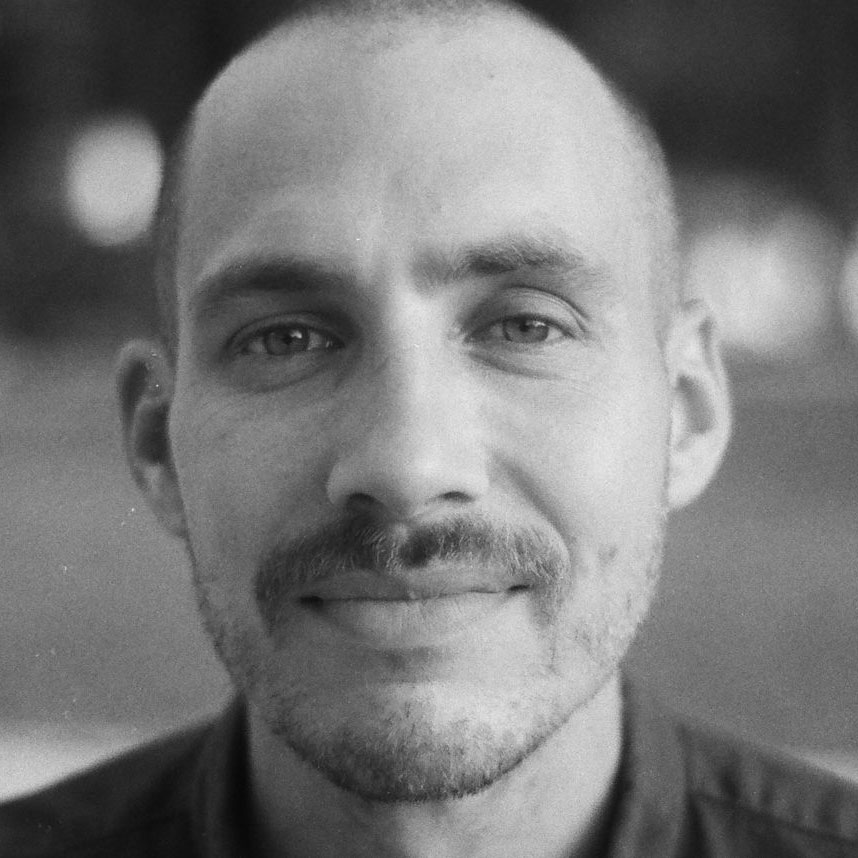
People tend to imagine Israel in one of two ways. They envision either a technological hub — a futuristic utopia built on ancient soil; or a war-torn land of camel-trodden dunes — a bleak and dusty landscape peppered with ancient stone buildings in the casbah style.
Both of these are true. Israel is, after all, a land of contradictions.
The country’s reputation as a tech powerhouse is deserved. It has a thriving innovation sector, a high concentration of startups and a penchant for producing technology valued around the world. At the same time, the vast majority of Israelis are not involved in the tech industry and don’t directly enjoy its benefits.
The high-tech sector has done little to mitigate the fact that Israel has some of the highest poverty rates in the developed world, and that most of the country’s minority populations like Arab Israelis and the ultra-Orthodox remain unemployed or underemployed. As The Economist magazine reported, “The dynamic, globalized startup nation accounts for only about a tenth of employment.”
Noted Tel Aviv University professor and researcher Dan Ben-David put it more starkly in his 2012 article, “The Start-Up Nation’s Threat from Within”: “How is this relatively high level of Israeli innovation factoring into the country’s productivity — and then into its living standards? The relation between the two is poor, at best.”
Amir Mizroch, director of communications at Start-Up Nation Central (SNC) in Tel Aviv, is well acquainted with Israel’s “threat from within” but sees it as a solvable problem. SNC was formed by The Paul E. Singer Foundation (PESF) and is funded by the PESF and a select group of philantrhopic partners. SNC pursues two main objectives: to connect Israeli startups with global companies and markets, and to develop untapped “human capital” in Israeli society.
“The high-tech sector represents 44 percent of all of Israeli exports,” Mizroch said. “But this vast industry is resting on a very narrow column. Of the 300,000 workers in Israel’s tech sector, the vast majority are male, Ashkenazi Jews with similar backgrounds in military intelligence units.”
This dependence on a limited pool of talent and perspective puts Israel at a disadvantage when it comes to global competition.
According to a recent report conducted by SNC and Israel’s Innovation Authority, 1 in 4 growth-stage Israeli tech companies is setting up research and development operations abroad — usually in the Ukraine or India — to take advantage of lower labor costs but also because Israel has a relatively small talent pool.
Israel’s quick start in the technological innovation sector is due to a couple of factors, Mizroch said. One can be summed up with the adage “necessity is the mother of invention” — as a young country isolated from its Middle East neighbors, Israel had to innovate to grow its economy. The other factor is density — Israel is small and its close-knit culture encourages collaboration and cross-pollination of ideas.
But the rest of the world is catching up. If Israel wants to keep its lead, its business and labor experts agree, it needs to quicken its pace and broaden its talent pool.
“In Israel, you’re expected to have chutzpah, to push your way forward. Arabs aren’t like this. They’re very polite.”
— Tal Morris
Recently, at the shared workspaces of WeWork Jerusalem, staff members with SNC’s “Excellenteam” program were preparing for the graduation ceremony that would mark the end of their pilot course. Furniture was being pushed out of the way as folding chairs were brought in.
Excellenteam is one of SNC’s human capital programs. It consists of two parallel courses, one for Arab Israelis and one for Charedi women. Designed to help participants get a foot in the door of Israel’s high-tech sector, the program provides hands-on programming experience and training in soft skills such as networking, resumé writing and job interview etiquette.
To the uninitiated, the term “human capital” may sound like impersonal corporate jargon. As a visitor scanned the WeWork offices, however, it was clear that the human element was being emphasized.
In a conference room, participants in Excellenteam’s course for Arab Israelis were putting the finishing touches on the final presentations of their projects. Before they started the course, they were strangers from different backgrounds — Muslim, Christian and Druze, northerners, southerners, urbanites, suburbanites and small-village dwellers. Now, as they traded ideas, they sounded like friends who had known one another since childhood. After weeks of studying together (interspersed with all-night, pizza-fueled hackathons and team-based projects) they had built something of vital importance to success in Israel’s high-tech world: a community.

Majd AbuHattoum, a participant from Nazareth, said he entered the Excellenteam program with modest expectations. He figured it would be a good way to “waste” three months between his university studies and the job market, especially since the program was paid for by scholarships. Why pass up extra training without extra cost?
“I knew it would be OK tech-wise, but I didn’t expect how amazing it would be socially,” AbuHattoum said. “I’ve never been close with people from Jerusalem or Beit Jann [a Druze village in northern Israel] before. We have different accents and different cultures. But everyone got along really great. That’s not always what you expect with a group like this.”
The sense of community AbuHattoum experienced is often taken for granted by current Israeli tech workers, many of whom come from similar backgrounds and are pipelined into tech careers from the same military intelligence units and universities.
“Arabs don’t always have an older brother or a cousin or a friend in the high-tech scene who can tell them how things work,” said Tal Morris, the program staff member in charge of recruiting and working with Excellenteam’s Arab participants. “Without a network, they have to figure it out on their own.”
But the lack of a network is just one of many challenges Israel’s minorities face when seeking employment in the tech sector.
“Sometimes employers will pass on the resumé that says ‘Muhammed,’ ” Morris said. “One candidate sent his CV out 50 times under his own name and heard nothing back. Then he sent it out three times with the name ‘Gadi’ and got an interview right away.”
When Arab candidates do get called to interviews, cultural differences present a further barrier.
“In Israel, you’re expected to have chutzpah, to push your way forward,” Morris said. “Arabs aren’t like this. They’re very polite.”
“Start-Up Nation Central pursues two main objectives: to connect Israeli startups with global companies and markets, and to develop untapped “human capital” in Israeli society.”
Religious candidates face similar discrimination. “There’s a stigma that ultra-Orthodox engineers are cheap and mediocre,” said Ohad Reifin, SNC’s vice president of strategy. “They aren’t. But sometimes their training is.”
Minority candidates often don’t pursue top positions because they assume they won’t be considered, according to Maty Zwaig, SNC’s director of human capital programs. “We speak to the big companies all the time and the HR departments tell us they don’t receive many CV’s from Arab or ultra-Orthodox candidates,” Zwaig said.
Companies want employees who can hit the ground running. Secular, male Jewish candidates come to the workforce with years of hands-on experience gained through internships, the military or both. Arab and Charedi candidates rarely have such experience.
Efrat Traube, a graduate of Excellenteam’s course for Charedi women, put it this way: “Computer science graduates don’t really know how to do anything. Imagine that we’ve been studying basketball. We know that a shot from here is two points and a shot from there is three, but we’ve never been on the court. We won’t be able to play if you throw us the ball.”
For a person who lives in the ultra-Orthodox world, studying in college is often a hard-earned privilege, and they can be discouraged when they realize that their degree is not enough on its own to secure a high-paying career.
“It’s not a trivial thing that we even have a degree,” Traube said. “Most of the people here did something brave just by deciding to study.”
Participants in the Excellenteam course for Charedi women also are balancing professional development with busy family lives. In the Charedi world, husbands dedicate their lives to talmudic studies, so the responsibilities of managing the household and being the breadwinner falls to the wife.

Two of the Charedi participants, in fact, had babies during the run of the course and returned within weeks of giving birth to resume their studies. Stories like these are a testament to the women’s ambition and tenacity, but also present a clear picture of the challenges the women will face in trying to maintain a career and raise a family.
“I don’t like to go there,” Traube said. “I want to believe that as long as you’re good enough, you’re going to get places.”
The program’s staff members shared her optimism, and during the graduation ceremony they emphasized one particular point: Arab Israelis and Charedi women have something vital to contribute to the country’s innovation economy, and the high-tech sector needs them as much as they need it.
“Arab Israelis and Charedi women have something vital to contribute to the country’s innovation economy, and the high-tech sector needs them as much as they need it.”
SNC is not alone in trying to address Israel’s “human capital” problem.
At the academic level as well, efforts are being made to expand and diversify the pool of Israelis heading into computer science programs.
Professor Yaffa Zilbershats, chair of the Planning and Budgeting Committee of the Council of Higher Education, said there is no shortage of good candidates for computer science programs in Israel. However, there is a shortage of places where they can learn, a shortage of infrastructure, and a shortage of quality teachers.
“Our main obstacle is scarcity of teachers,” Zilbershats said. “The good people, even if they have PhDs, are being abducted by the industry where they can earn more money.”
In collaboration with the government and with the tech industry, the Planning and Budgeting Committee has been working to provide more funding for tutoring and assistance programs in an effort to ensure that a greater percentage of students succeed in their degree studies and are ready for the job market.
“This is of value for all students, and in particular for Arab Israelis and Charedim,” Zilbershats said. “We provide academic support, social support, mental support, anything they need. We also work with the industry to create opportunities for students to work on hands-on projects as they study.”
In Israel, what unites also divides. Military service, in certain swaths of Israeli society, is the great equalizer, a shared experience of camaraderie and responsibility. The flip side of this cohesion is the divide that military service places between secular and religious people, Jew and Arab. National identity and religion have a similar effect. When shared, they produce the tightest of bonds. When not shared, they often create alienation.
The high-tech industry, then, presents a unique opportunity for Israel: It can be a source of national pride and distinction, without the divisive trappings of ethnicity, peoplehood or religion; something that everyone can get behind and take part in.
At least in theory.
“Most of the people here did something brave just by deciding to study.”
— Efrat Traube
At the WeWork offices, as people arrived for the graduation ceremony, many different sectors of Israeli society were represented.
Until this day, the training courses for Charedi women and Arab Israelis had been kept separate. Avital Bass, Excellenteam’s program manager, admitted to being nervous about bringing together the two groups. She had her eyes peeled for any signs of tension or discomfort among the people taking their seats on the folding chairs.
If there was any tension, it wasn’t expressed — a small but reassuring indication that Israel is more than the sum of the stereotypes repeated about it.
During the ceremony, the graduates went before a panel of judges to present the projects they had been working on.
From the Charedi women’s group, the winning presentation was a remarkable project designed for use in schools with special-needs children. The software they created sensed environmental changes in a classroom (such as sudden bright lights, an increase in noise or overcrowding) and alerted teachers as to which students might be affected by the conditions, offering tips for helping the students cope in constructive ways.

The Arab Israeli teams’ winning project, called “Catch Me If You Can,” used facial recognition software to match the faces of people scanned by outdoor advertisements with the faces of people seen purchasing those advertised products at a store. A bit unsettling, perhaps, but a clever, appealing idea for businesses wanting to measure the effectiveness of their advertisements.
While watching the presentations at the graduation ceremony, it became apparent what a positive effect an initiative like Excellenteam can have.
SNC’s main goal is to expand Israel’s talent pool, but its program can expand a much larger pool of human creativity as well. Programmers and designers from different backgrounds will think differently, will find new solutions for tired problems and will identify challenges that a homogenous group might fail to recognize.
If the Excellenteam program continues to grow, it could very well transform Israel’s tech landscape. It could also change the lives of Charedim, of Arab Israelis and, indeed, of all Israelis.
Matthew Schultz is a writer living and working in Tel Aviv.





















 More news and opinions than at a Shabbat dinner, right in your inbox.
More news and opinions than at a Shabbat dinner, right in your inbox.